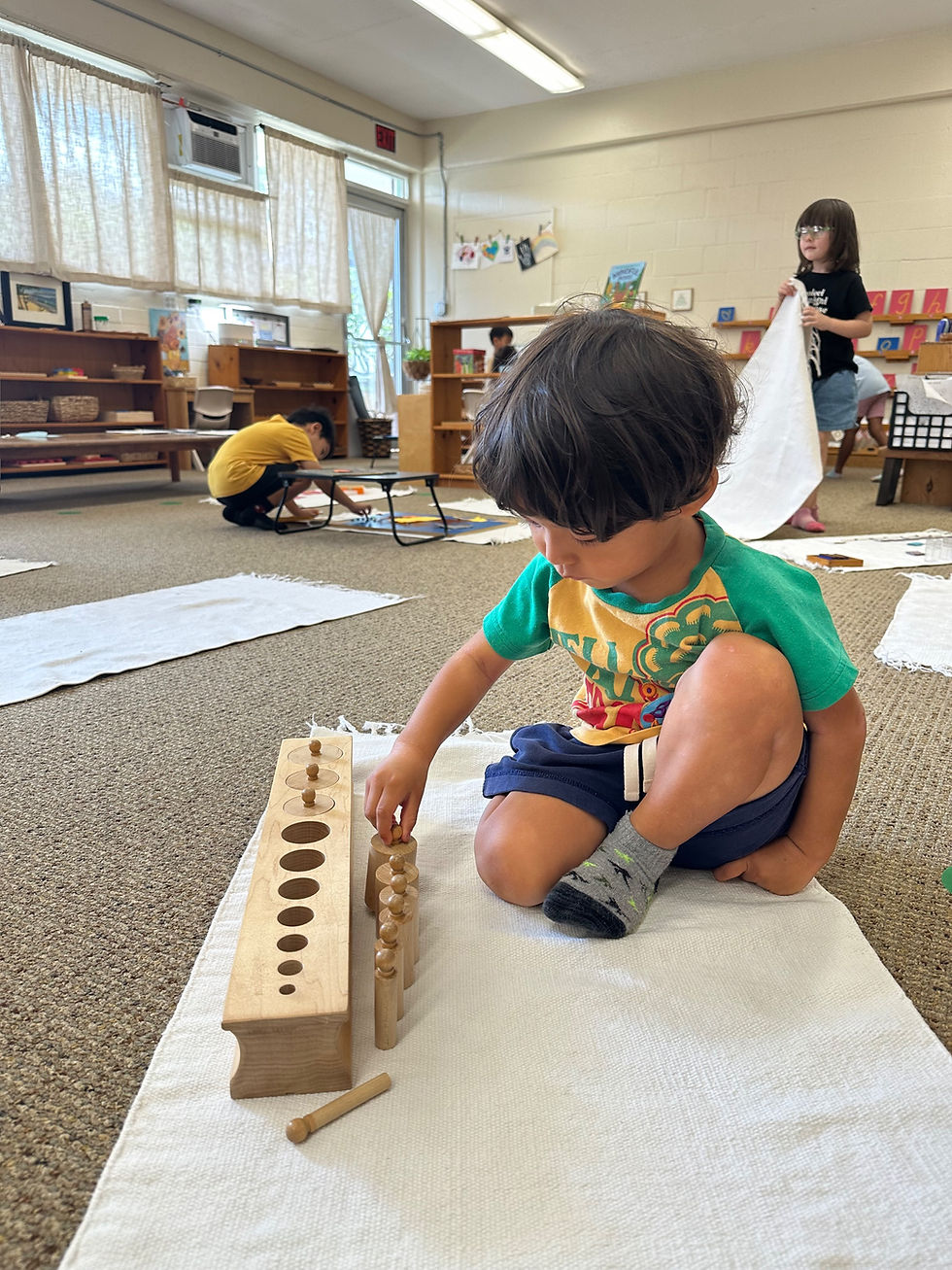The Work Cycle
- Montessori Community School

- Feb 22, 2024
- 2 min read

In February, the Montessori term of the "work cycle" takes center stage within the carefully curated environment of the Montessori classroom. This term encapsulates a fundamental aspect of Montessori philosophy, emphasizing the importance of allowing children the freedom and responsibility to engage in purposeful activities at their own pace and rhythm.
At the heart of the work cycle lies a structured yet flexible routine designed to nurture independence, concentration, and a deep sense of fulfillment in the child's learning journey.
At, Montessori Community School, children are taught to complete a work cycle which includes:
Choosing an Activity
Central to the Montessori approach is the principle of child-led learning. Within the prepared environment, children are presented with a diverse array of hands-on materials and activities carefully chosen to meet their developmental needs and interests. During the work cycle, children are encouraged to follow their innate curiosity and select activities that capture their attention and engage their senses. This freedom of choice fosters a sense of autonomy and ownership over their learning process, empowering children to explore and discover at their own pace.
Conducting the Activity to Completion
Once a child has chosen an activity, they are guided through a sequence of steps designed to promote mastery and skill development. Whether it's pouring water, sorting objects, or working with sensorial materials, children are encouraged to engage in the activity fully, from start to finish. Repetition is welcomed and encouraged, allowing children to refine their skills, deepen their understanding, and experience a sense of accomplishment as they progress. Through this process, children develop focus, attention to detail, and perseverance—the building blocks of lifelong learning.
Experiencing a Sense of Satisfaction
As children complete an activity and return materials to their designated place, they experience a profound sense of satisfaction and fulfillment. This sense of accomplishment is not merely a result of finishing a task but stems from the intrinsic joy of learning and the tangible impact of their efforts. Montessori education places great emphasis on nurturing the child's natural desire to learn and explore the world around them, fostering a lifelong love of learning that extends far beyond the classroom walls.
The work cycle in the Montessori classroom is not just a routine; it's a dynamic process that honors each child's unique developmental journey and cultivates essential life skills such as independence, responsibility, and self-confidence. By providing a supportive environment where children are free to follow their interests, engage in purposeful activities, and experience the joy of discovery, the Montessori approach lays a solid foundation for a lifetime of learning and growth.




